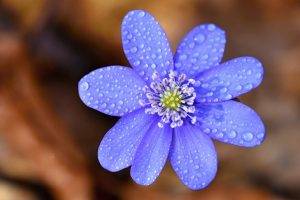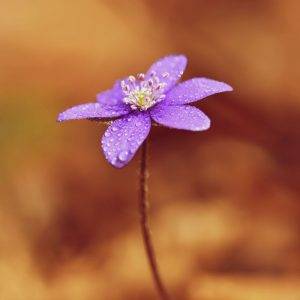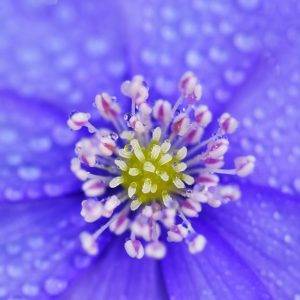
Liverwort – Anemone Hepatica
Description of May-grass-anemone:
AnemoneHepatica L. (Old or other familiar names: bush-weed, peanut-apple-grass, noble liverwort, fox-eye, heart-grass, noble liverwort) Buttercups – Ranunculaceae perennial plant 6-15 cm tall. Leaf stalk mottled. Leaves with a cordate base and three lobes, lobes intact, leaf bracts inverted. Murva collar cup-shaped, green-leaved. sepals 8 to 10 sepals sky blue, rarely pink or white.
 Occurrence:
Occurrence:
Usually favours woodlands on calcareous soils. In our country it grows in mountainous and hilly areas in shady forests.
Part to be collected:
The flowering, above-ground part of the plant, called the ‘herba’, is collected.
Active substances:
 Anemonin, tannic acid.
Anemonin, tannic acid.
 Harvesting and drying:
Harvesting and drying:
The above-ground part of the plant, flowering between April and May, should be collected and should not be exposed to direct sunlight during drying. The plant, spread out in a layer about the thickness of a palm in an airy attic, dries in 6-8 days.
Processing and marketing:
Used in folk medicine and homeopathy. Source: Dr Ferenc Darvas and Dr Gyula Magyary-Kossa,Domestic herbs, their production, marketing, effects and medicinal uses
